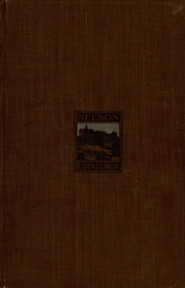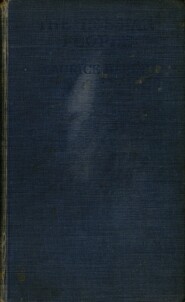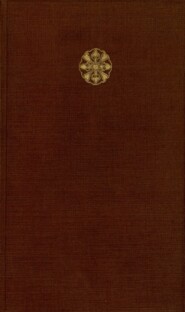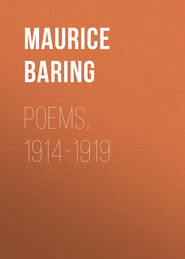По всем вопросам обращайтесь на: info@litportal.ru
(©) 2003-2024.
✖
Passing By
Настройки чтения
Размер шрифта
Высота строк
Поля
Cunninghame went down to Rosedale at her urgent request this morning. He did not call at the office on the way.
Letters from Guy Cunninghame to Mrs Caryl
ROSEDALE,
Friday, December 22nd.
DEAREST ELSIE,
I came down here early this morning. Lady Jarvis heard the news from Miss Housman last night and at once offered to go, but Mrs Housman said she would rather see no one at present. Carrington-Smith was making all the arrangements. The funeral is to be on Tuesday. I told Lady Jarvis about Mrs Housman being in London. She said Mrs Housman often went up to Garland's Hotel. She found it a complete rest and the house at Campden Hill was very cold and there was no cook there. Lady Jarvis said it was the most natural thing in the world. I told her about the letter. She said Mrs Housman had no doubt written to Housman saying she had gone to Garland's Hotel and was coming back. I also told her what Carrington-Smith had said about Mrs Fairburn. She said: "That was it. It was those terrible scenes which used to shatter him and no doubt caused his death." Lady Jarvis says it will be a shock to Mrs Housman in spite of everything. The fact of Housman having made her very unhappy, or rather of her having been very unhappy as his wife, will make no difference to the shock. Lately Lady Jarvis says he had made things very difficult for her. Mrs Fairburn was always there.
One can't help thinking – well you know, I needn't explain. I wonder what will happen in the future. I have heard nothing from George yet. There is no one here. Housman must have left an enormous fortune. He was very canny about his investments, and very lucky too. Randall told me he had almost doubled his fortune in the last three years, and he was rich enough to start with.
Yours,
G.
P.S.. – Lady Jarvis' explanation of the letter does not quite satisfy, but what did happen? What does it all mean?
LONDON,
Monday, January 1st.
DEAREST ELSIE,
I came up to-day for good. I went to Housman's funeral last Tuesday. Mrs Housman went down to Rosedale directly after the funeral. She is going to Florence next week and means to stay on there indefinitely. George has come back. He never wrote and I did not hear from him till he arrived at the office this morning. He is just the same as usual except for being subtly different.
Housman left everything to her.
Yrs.
G.
P.S.– I told Godfrey everything that had happened at Oakley. He said nothing. He appears incapable of discussing the matter.
From the Diary of Godfrey Mellor
Monday, January 1st, 1912.
A. arrived last night from Paris. He came to the office and he thanked me for what I had done in his absence. "Everything was quite right," he said. He conveyed to me without saying anything that I need not distress myself about the telegram and that he still trusted me.
He did not mention Mrs Housman nor the death of Housman.
Wednesday, February 28th.
I heard to-day from Mrs Housman. She tells me she has entered the Convent of the Presentation and intends to be a nun. I cannot say the news surprised me, but to hear of the death in life of anyone one knows well, is almost worse I think than to hear of their death.
Letter from Guy Cunninghame to Mrs Caryl
LONDON,
Wednesday, February 28th.
DEAREST ELSIE,
I have just had a short letter from Lady Jarvis telling me that Mrs Housman is going to be a nun. I have not set eyes on her since Housmans funeral, and have only heard of her, and that not much, from time to time from Lady Jarvis.
I confess I am completely bewildered, and I hope you won't be shocked if I tell you that I' can't help thinking it rather selfish. Do as I will, I cannot see any possible reason for her taking such a step. Mrs Housman seems to me the last person in the world who ought to be a nun. Whether it will make her happy or not, I am afraid there is no doubt that she will be causing a lot of intense misery. George is worse than ever. He hasn't in the least got over it, and he never will, I feel sure. He knows what has happened, but he can't even bring himself to talk about it. I think he must have known of it for some time. In any case he hasn't for one moment emerged from the real fog of gloom and misery that has wrapped him up ever since Christmas.
What is so extraordinary is that just before Christmas he was in radiant spirits after all those months of sadness!
I can't see that it can be right, however good the motive, to destroy and shatter someone's life!
His life is destroyed, shattered and shipwrecked! We must just face that.
I tried to think that we had always been wrong and that my first impressions were right, that she had never really cared for him. But I know this is not true. You will forgive me saying that I think your religion has a terribly hard and cruel side. Nobody appreciates more than I do all its good points, and nobody knows better than I do what a lot of good is often done by Catholics. But it is just this sort of thing that makes one revolt.
I was reading Boswell last night before going to bed, and I came across this sentence: "Madam," Dr Johnson said, to a nun in a convent, "you are here not from love of virtue, but from fear of vice." Even this is not a satisfactory explanation in Mrs Housmans case. It is obvious that she had nothing to fear from vice. I can't help thinking she has been the victim of an inexorable system and of a training which bends the human mind into a twisted shape that can never be altered or put straight.
Frankly, I think it is more than sad, I think it is positively wicked; not on her part, but on the part of those who have led her to take such a mistaken view of ordinary human duty. After all, even if she wants to be a nun, isn't it her duty to stay in the world? Isn't it a more difficult duty? What is one's duty to one's neighbour? Forgive me for saying all this. You know in my case that it isn't inspired by prejudice.
It is cruel to think that most probably George will never get over this, and that she has sacrificed the certain happiness of two human beings and the chance of doing any amount of good in the world. What for? For nothing as far as I can see that can't be much better done by people far more fitted to that kind of vocation. I am too sad to write any more.
Yrs.
G.
From the Diary of Godfrey Mellor
Thursday, March 1st.
I dined alone with Cunninghame at his flat last night. He had heard the news about Mrs Housman. He was greatly upset about it, and thought it very selfish. I said I believed the step was not irrevocable, as one had to stay some time in a convent before taking final vows.
He said: "That is just what I want to talk about, just what I want to know. How long must one stay exactly?"
I said I did not know, but I could find out. He said I want you to find out all about it as soon as possible. A., he said, was in a dreadful state. He had dined with him last night. He had said very little; nothing personal, not a word about what he felt about it, but he had asked him, Cunninghame, whether he knew what the rules were about taking the veil.
C. said he did not believe Mrs Housman would take an irrevocable decision. He had told A. he would find out all about it. I could of course ask Riley, but I don't know whether he would know.
I decided I would apply to Father Stanway, the priest I met at Carbis Bay, for information. I wrote to him, saying I wished to consult him on a matter, and suggested going down to Cornwall on Saturday and spending Sunday at Carbis Bay.
Friday, March 2nd.
Received a telegram from Father Stanway, saying that he will not be in Cornwall this week-end, but in London, where he will be staying four or five days; and suggesting our meeting on Sunday afternoon. I sent him a telegram asking him to luncheon on Sunday.
Sunday, March 4th.
Father Stanway came to luncheon with me at the Club, and we talked of the topics of the day. After luncheon I suggested a walk in the park. We went for a walk in Kensington Gardens. I asked him first for the information about the nuns. He said, as far as he could say off-hand, it entailed six months' postulancy, two years' "Habit and White Veil," three years' simple vows of profession; and then solemn perpetual vows. But he said he could write to a convent and get it quite accurate for me. In any case he knew it was a matter of five years.
I then said I would like, if he did not mind, to have his opinion on a case which I had come across. He said he would be pleased to listen.
I then told him the whole Housman story as a skeleton case, not mentioning names, and calling the people X. and Y. Very possibly he knew who I was talking about, almost certainly I think, although he never betrayed this for a moment. I felt the knowledge, if there were knowledge, would be as safe as though given in the confessional. I told him everything, including a detailed account of Housman's death which Cunninghame had given me. I referred to Housman as X., to Mrs Housman as Mrs X. and to A. as Y.
I then asked him if he thought Mrs X. was justified in taking such a step, and whether it would not be nobler, a more unselfish course, to remain in the world and to make Y. happy.











